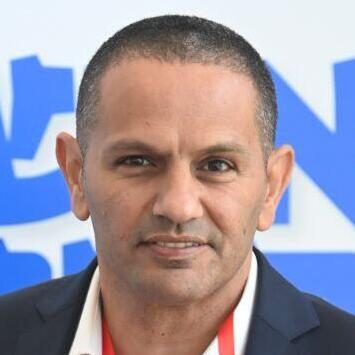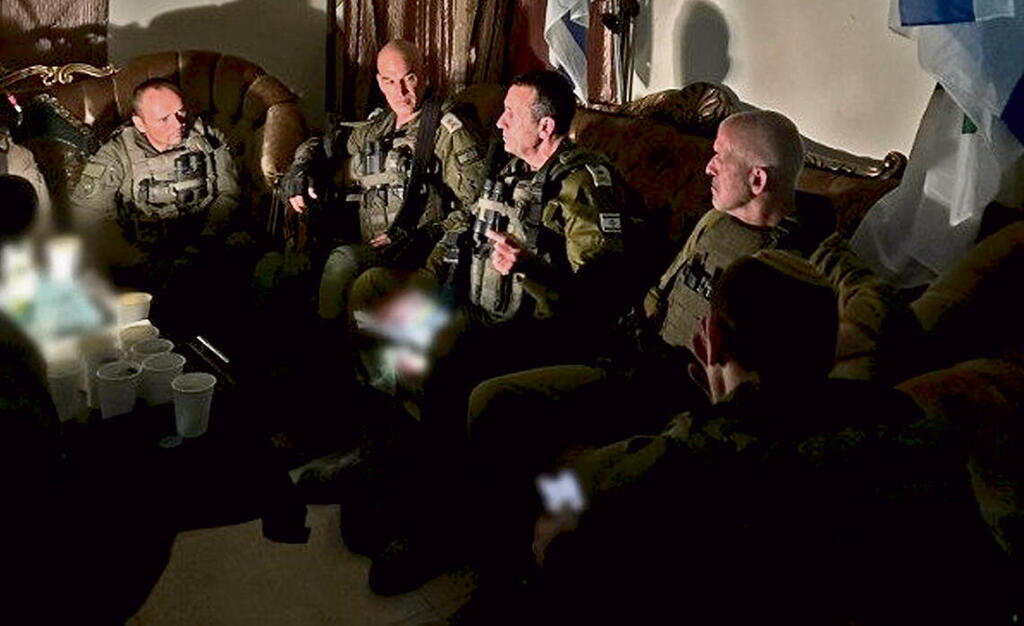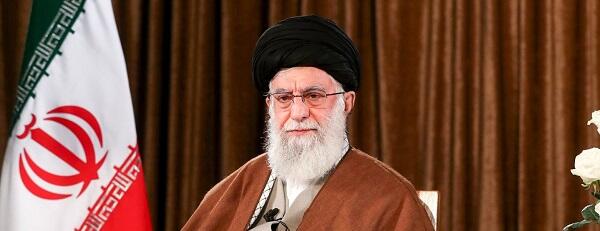Getting your Trinity Audio player ready...
If you had asked any high-ranking IDF official on July 30, the day before Hezbollah's Chief of Staff Fuad Shukr was eliminated, whether Israel would be in its current state against the terrorist organization by Yom Kippur, effectively turning the tables on the Shiite axis, they might have thought you were day-dreaming. However, a sequence of successful operations emboldened decision-makers within IDF leadership and the political echelon to revise the original strategy against Hezbollah.
Initially, the plan was to launch the war with a powerful attack, followed by ground maneuvers, and eventually conclude with an agreement. This time, Israel adopted a more nuanced approach, entering the conflict gradually and strategically, leveraging extensive intelligence and precise firepower.
The first step was seizing the initiative with Shukr's elimination. A significant retaliatory response was expected, but it was preempted by an Israeli strike and robust air defense. From there, the decision was made to engage in the conflict without a formal declaration and without letting the adversary realize the extent of the engagement.
In a broad forum discussion, Major General Oded Basiuk, head of the Operations Directorate—who faced criticism on October 7 but has since been instrumental in leading the campaign—remarked that even on the day of Nasrallah's elimination, the Hezbollah chief himself did not understand Israel was at the war's peak, not merely in another escalation.
Starting with strikes on August 24, the IDF began degrading Hezbollah's launch capabilities, not only along the line up to the Litani River, under Northern Command's responsibility, but also further north, in areas under the General Staff's jurisdiction. From this point, without a formal announcement, the Air Force targeted sites gathered over years by Military Intelligence, including thousands of short- and medium-range rockets that threatened as far as Haifa.
Surprisingly, Nasrallah "maintained the boundaries," and the conflict remained contained, during which he lost a significant portion of his firepower. According to foreign reports, this led to an unforeseen operational opportunity—to activate a plan involving communication devices initially intended for the war's opening strike. This plan, nearly exposed, was executed successfully in collaboration with the military and Mossad.
IDF then moved to eliminate the head of the Operations Directorate and acting Chief of Staff, Ibrahim Aqil, along with the decapitation of the Radwan elite unit. Brigade commanders were killed following the elimination of division commanders Abu Taleb and Abu Naama in June.
The next phase involved a pre-planned assault on Hezbollah’s rocket and precision missile arsenal. Thousands of pre-identified targets were attacked, but the IDF announcements focused on evacuating weapon storage sites rather than a full-scale war to create the impression of a limited conflict
Days later, the political echelon expanded the decision to eliminate Nasrallah. IDF had the capability but not the authorization. His elimination, alongside Ali Karaki, commander of the southern front, was dramatic. Unlike Hamas leader Yahya Sinwar, who operates like a fugitive, Nasrallah managed operations himself, making his removal highly significant.
IDF launched an operation named after an Aviv Geffen song, involving deception and extensive intelligence. This operation targeted Hezbollah sites where mid-level commanders were present. IDF knew in advance where they planned to take refuge and struck them from the air simultaneously.
Simultaneously, operations targeted military production infrastructure in Beirut, coastal missiles, and imposed an unofficial blockade on Lebanon by striking Syria and preventing Iranian transport planes from reaching Beirut. This was complemented by a ground maneuver aimed at clearing Hezbollah's infrastructure for occupying northern communities.
The military now believes it's essential to maximize the strategic gains through a diplomatic plan while Israel holds the upper hand, rather than prolonging aimless combat. No dramatic military achievements remain, and Hezbollah always has the potential to regroup and launch rockets, dragging Israel into a war of attrition, which is not in the IDF's interest. Currently, Hezbollah is not firing deep into Israel but still has rockets and missiles, far fewer than anticipated, but significantly more than Hamas. On Saturday, during a strike outside Dahieh in Beirut, Wafik Safa, Nasrallah's special negotiator, was also eliminated.
"Israel," says IDF's top brass, "is in the best strategic position against Hezbollah and the Shiite axis. We have cut off two arms of Iran, Hamas, and Hezbollah, and it's doubtful anyone believed we would reach this point. There are no significant achievements left. There is still work to do, but it is minimal."
IDF leadership believes that now is the right time to secure a favorable agreement, which includes distancing the Radwan unit, enforcing Israeli policies, preventing Hezbollah's rearmament, and, if necessary, conducting Israeli ground raids on infrastructure—should it be established—along the contact line; alongside reaching a hostage agreement in Gaza. While Hezbollah still exists, it is a different organization. Even the Iranians are shocked by the loss.
However, despite the current satisfaction, it is prudent to await the Israeli strike on Iran and, particularly, the Iranian response. These exchanges could potentially expand the regional conflict, but they will not diminish the achievement against Hezbollah.
Get the Ynetnews app on your smartphone:





